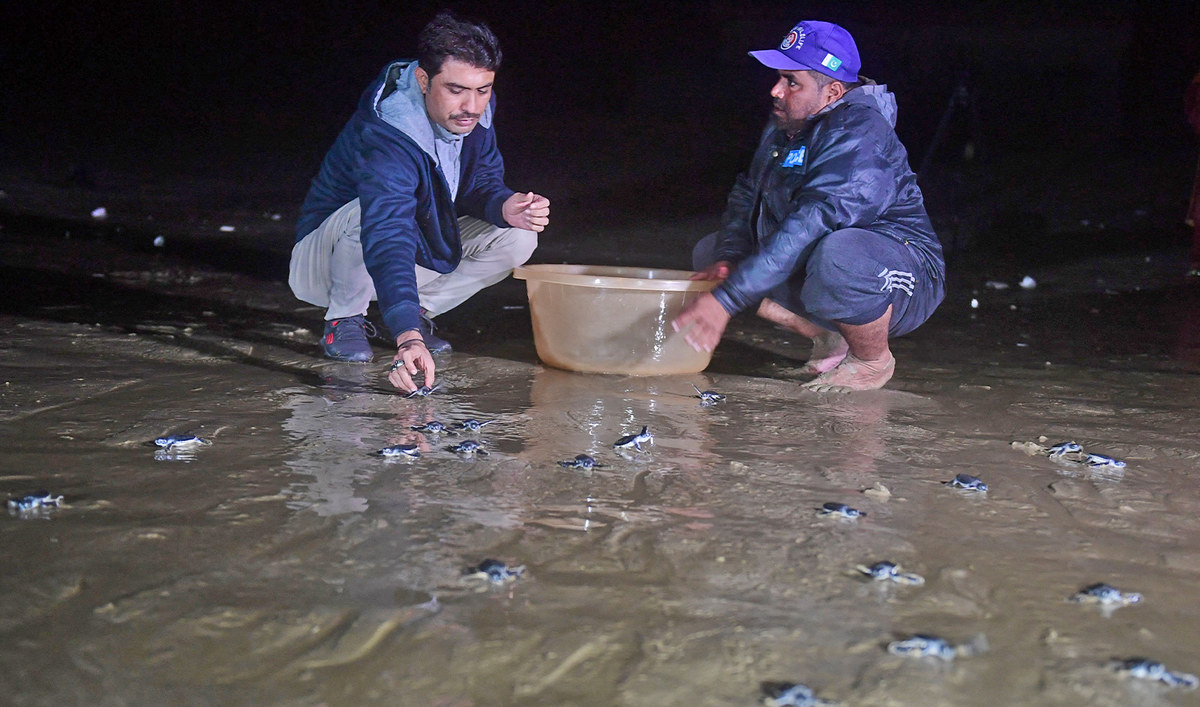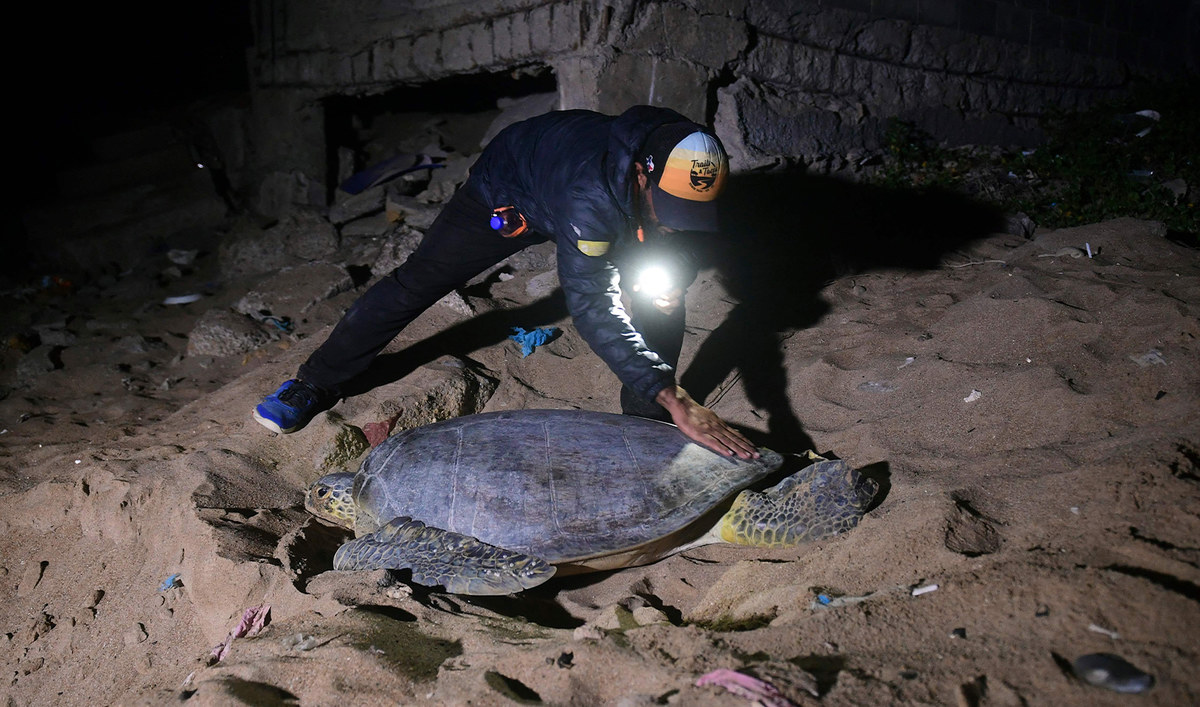KARACHI: Against the backdrop of the mega port city of Karachi, choked with traffic and construction, four green turtles emerge from the frothy Arabian Sea seeking a spot to lay their eggs.
Three immediately retreat to the water, put off by the glittering lights and heavy beat of a nearby beach party.
But one trundles toward the end of the beach bank, its flippers whipping sand into the air before settling on a dry spot of sand in which to deposit 88 golf ball-sized eggs.
Six conservationists tasked with protecting the last surviving turtle species to nest in Pakistan stand guard nearby.
“Being human doesn’t only call for loving another human being. These animals also require the same attention and love,” said Ashfaq Ali Memon, the head of marine wildlife at Sindh province’s Wildlife Department.

In this picture taken on November 28, 2023, Ashfaq Ali Memon (L), the head of marine wildlife at Sindh province's Wildlife Department, releases newly-hatched green turtles on Sandspit beach in Karachi. (AFP)
Sandspit Beach is a beloved recreation spot for the city’s 22 million residents, as well as a critical habitat for Pakistan’s endangered green turtles.
The eight-kilometer (five-mile) stretch of beach is being relentlessly encroached upon by the construction of concrete beach houses that have, meter-by-meter, eaten into the strip of sand where turtles nest.
“Once I saw someone disturbing a turtle while she was laying eggs. She ran off for safety, leaving a trail of eggs behind her. That was a very painful scene,” said Haseen Bano, Memon’s wife who supports the work of the volunteers.
Marine turtles have covered vast distances across the world’s oceans for more than 100 million years but human activity has tipped the scales against the survival of these ancient creatures, the World Wildlife Fund says.

In this picture taken on November 28, 2023, Sindh province's Wildlife Department volunteer Amir Khan checks a green turtle after she laid eggs on Sandspit beach in Karachi. (AFP)
Until the early 2000s, the beaches of Pakistan’s Arabian coast were the nesting habitat for five endangered turtle species.
Now only the green turtles come to shore to lay their eggs on just two beaches in Karachi and on uninhabited islands in Balochistan province, further down the coast toward Iran.
Alongside construction, noise and garbage pollution, WWF-Pakistan has also reported that diesel and petrol fumes have caused deformities in hatchlings.
As well as major disruption to their nesting habitats, thousands of turtles are also injured or killed in fishing nets every year.
Named for the greenish color of their cartilage and fat, they are classified as endangered across the world.
Sindh Wildlife Department has a dedicated team of six volunteers, paid according to fluctuating donations, who patrol the beaches after dark during nesting season between August and January.
“When the turtles arrive to use the pits, our volunteers are present to take care of them and to ensure no one can disturb them,” Amir Khan told AFP.
The 88 — a decent batch for a young female — were delicately collected the same night and taken to a protected coastal conservation center and reburied in the sand for the 45-60 day hatching cycle, away from the danger of stray dogs, mongoose and snakes.
Baby turtles just a few hours old and only about two inches long are meanwhile brought to the water’s edge in buckets by volunteers and released one-by-one, swimming off into the night.
Data on the number of green turtles is not available in Pakistan but, for the past few years, the number of hatchlings has increased.
In 2022, volunteers successfully hatched 30,000 eggs and the current year’s count has already passed 25,000 just over halfway through the season.
Khan said these “living dinosaurs” will continue to struggle against the accelerating urban sprawl of the city and the dangers posed by fishermen.
“It feels good to take care of these turtles, they boost the beauty of our beach,” said Mohammad Javed, a 29-year-old volunteer who inherited the caretaker legacy from his father.
















